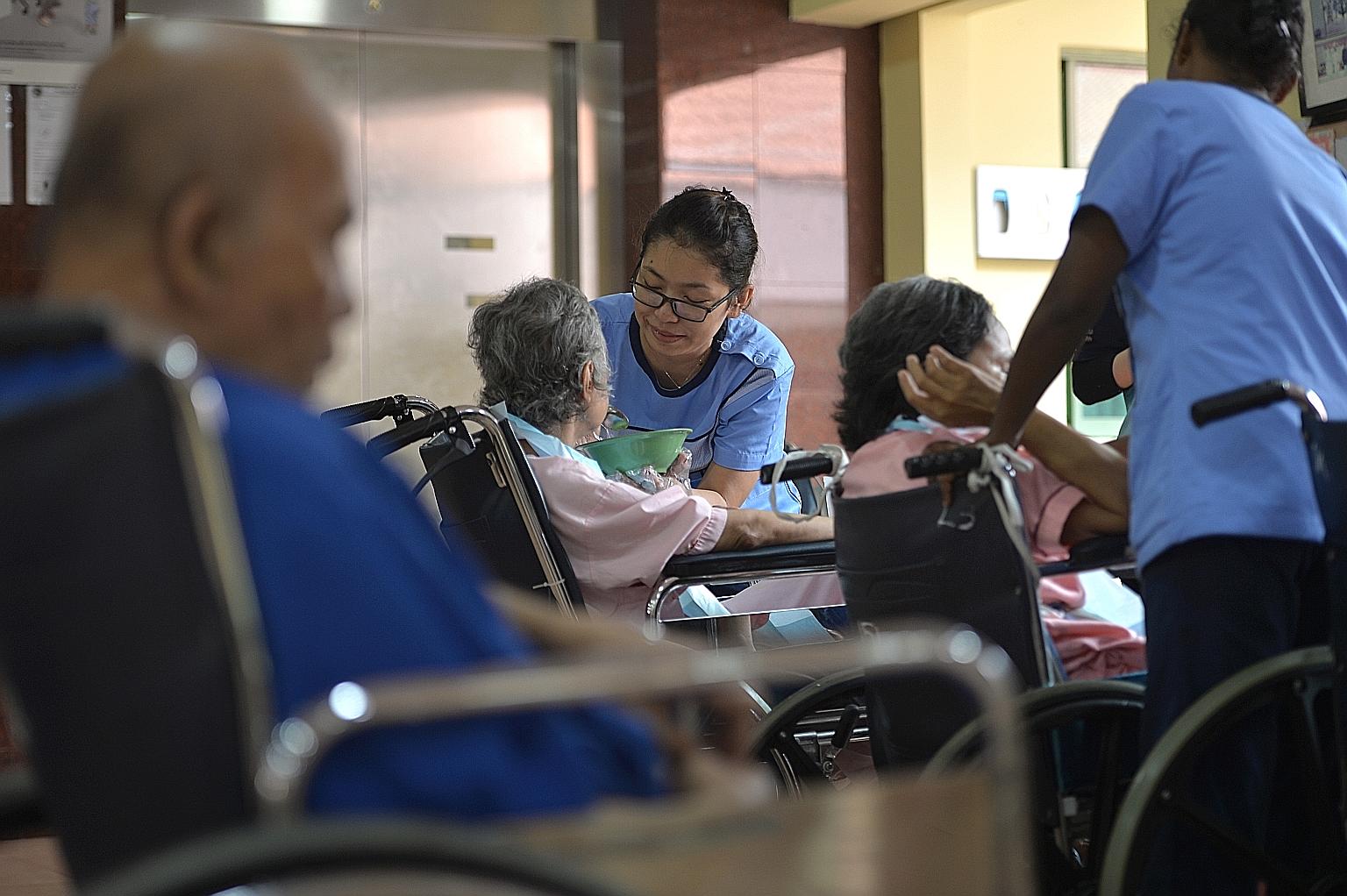New law to license, regulate emerging healthcare services
It will replace Private Hospitals and Medical Clinics Act, first enacted four decades ago
Sign up now: Get ST's newsletters delivered to your inbox

As care moves beyond the hospital to the community, the change will allow for traditional healthcare settings to integrate other services, said Senior Minister of State for Health Edwin Tong. For instance, nursing homes will now be able to provide dementia care and geriatric clinical services at one location.
ST FILE PHOTO
Follow topic:
As new forms of healthcare such as telemedicine and mobile medical services become common, a new law seeks to better regulate them to safeguard the safety and welfare of patients.
The Healthcare Services Bill was approved by Parliament yesterday, and will give the authorities powers to license new models of care.
It will replace the Private Hospitals and Medical Clinics Act, first enacted four decades ago, which licensed healthcare providers based on their physical premises.
Senior Minister of State for Health and Law Edwin Tong told the House the need for change is long due, given the rapidly evolving healthcare landscape and the rise in age-related illnesses and chronic diseases as the population ages.
As care moves beyond the hospital to the community, the change will also allow for traditional healthcare settings to integrate other services, he added.
For instance, nursing homes will now be able to provide dementia care and geriatric clinical services at one location. Hospitals or medical clinics can also provide telemedicine, offering more convenience and cost savings to patients, especially the aged sick with minor ailments or who are following up on chronic conditions.
Allied health services, such as those provided by dietitians, physiotherapists and speech therapists, among others, will be covered. So will traditional medicine practitioners as well as complementary and alternative medicine providers.
However, the Ministry of Health (MOH) is taking a calibrated approach to progressively license healthcare services and has no plans to license these services yet. Said Mr Tong: "If significant patient safety risks emerge, we can then decide to license these services."
Beauty and wellness service providers, who do not diagnose, assess or treat diseases and are of minimal patient safety risk, fall outside the scope of the Bill, he added.
To prevent public misperception that such services are endorsed and licensed due to their close proximity and association with licensed services, they will not be allowed to co-locate with or within a licensed service, unless approval is given. For instance, a spa cannot be co-located with a medical clinic.
Exceptions are made for allied health services and other services that complement licensed ones. For instance, a physiotherapist can be co-located with an orthopaedic clinic.
New provisions to safeguard patients include "step-in" powers to allow MOH to temporarily take over the operations of residential healthcare service providers like nursing homes, should they be in serious financial trouble.
The new law will be implemented in three phases from early 2021 to the end of 2022, to give service providers time to meet regulatory requirements. The new provisions will first apply to current clinic laboratory licensees, followed by current clinic licensees and private ambulance operators, which are new licensees, in the second phase.
The last phase is for current hospital licensees and other newly regulated services like telemedicine as well as new, innovative and potentially costly treatments like proton beam therapy, a new form of radiation therapy to treat cancer.
MOH said several initiatives are in place to ensure new licensees are ready, such as the voluntary accreditation scheme (VAS) for private ambulance operators. More than 50 per cent of ambulances have come on board the VAS, and the ministry will work with VAS ambulance operators to develop and publish the range of fees charged so that consumers can make better-informed choices on the providers to use.
The law has been two years in the making. A draft version was put up online in January 2018 and public feedback was sought.
It was expected that it would be mandatory for all healthcare institutions, including laboratories, to input patient data in the National Electronic Health Record. But this "elephant in the room" has been deferred until the enhancements that are being made are complete, and MOH will make further announcements on this at the appropriate juncture, said Mr Tong.

